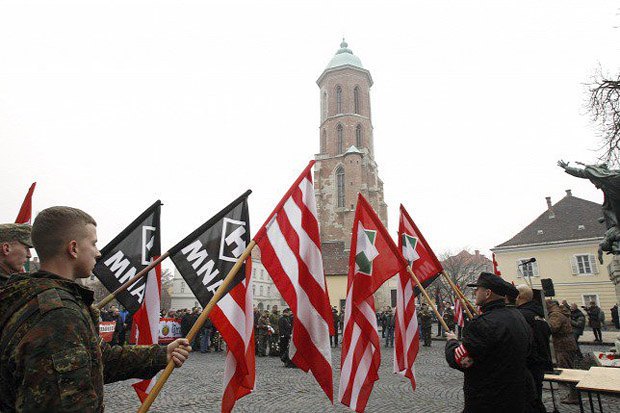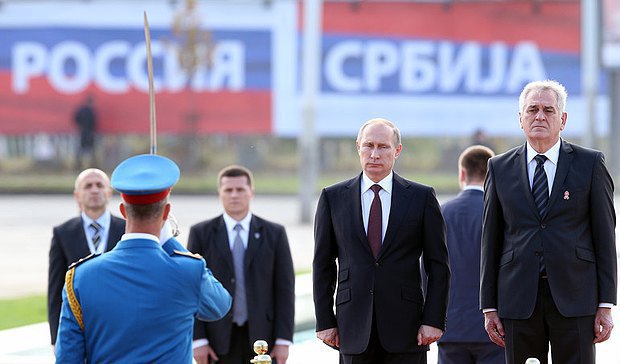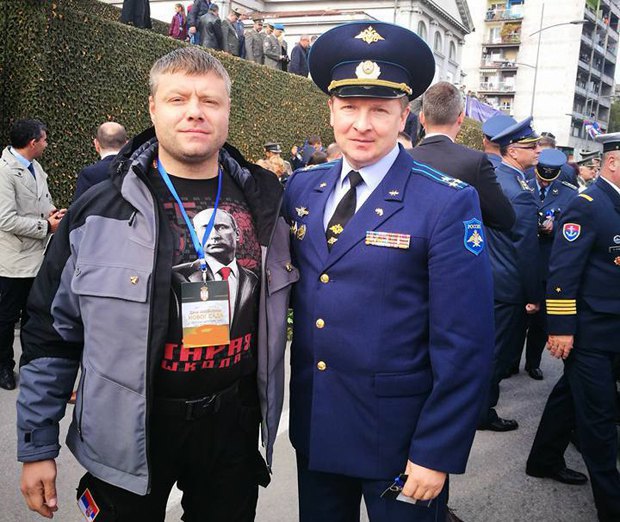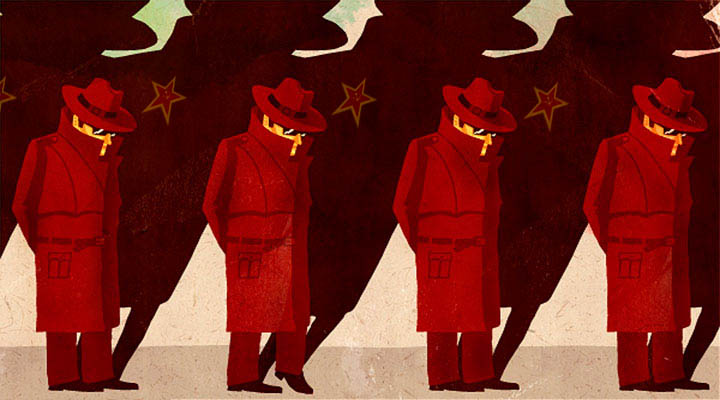Because of the spying allegations raging around the US election, many seem to think that the Russian special services are top professionals who are overall invincible. However, in my view, the situation is not so critical as it may seem at first. However alongside “victories,” Moscow has been observed to suffer a number of huge foreign policy defeats in the recent years, the most striking of which were the failed Novorossiya scam project and the scandal with the failed coup in Montenegro.
Below I will share my thoughts on the reasons for Russia’s success with regard to its “main enemy” and how it matches its failures in other areas.
The Russian intelligence (let’s call it the KGB for the purposes of this article because it also includes the efforts made by the Main Intelligence Directorate, the External Intelligence Service and the Federal Security Service) indeed succeeded in the destabilization, misinformation and recruitment, however in all countries it uses one and the same scenario, one and the same pattern which had its own strengths and weaknesses.Corruption is the main vessel through which Russian influence is trickling from one country to another, especially in the post-Soviet space.
KGB strong points
1. Recruiting Western politicians. One must give the KGB credit for being strong in recruiting Western politicians, using all sorts of means such as business interests, overt bribery, dirty laundry, and the corruption component. Corruption is the main vessel through which Russian influence is trickling from one country to another, especially in the post-Soviet space.
Related: Perfection as a weapon of hybrid warfare
2. Exploiting all the contradictions which exist in society and blowing them out of proportion. As I have already said, the key methods of the KGB include using any dirty laundry, any dispute, human weakness, likes and dislikes, hatred, prejudice, fear and so on. These include numerous clichés, labeling, demonization of certain groups of people, ruining of identification, creation of false patterns and clichés which prevent people from treating each other objectively. As a result, even the smallest contradictions are seen as insurmountable while natural difficulties are presented as catastrophes. Distorting the reality and pulling various political and social forces into the war of all against all is KGB’s currently favorite method of destabilization. And Moscow does not despise simultaneously supporting radicals and separatists of the most conflicting ideologies: left and right, and nationalists of all colors.

3. To implement the first two methods, “active measures” are being used: lies, propaganda, hacking and false news, which in some cases can also be used to support intrusions by hackers, leaks of compromising information, armies of trolls whose task is to create an illusionary public opinion and many other tools. Namely, these measures attract numerous “useful idiots,” consumers of the Russian propaganda, to the ranks of Russia’s supporters.
Related: Russian trolls terrorize the West with old KGB methods
4. Criminals are used as the main driving force if destabilization evolves into a “hot phase” (the way it happened during the preparations for the occupation of Donbas or the coup in Montenegro).
5. Active religious propaganda, or rather the propaganda of an ideology under the disguise of religion, which wraps the Kremlin’s crimes into “Christian values” while Russia is proclaimed as their main defender. This kind of propaganda is successfully used even without a formal connection with Russia when a pro-Russian candidate declares himself or herself as a proxy of numerous churches even when his or her view and actions have nothing to do with the Christian faith.
Here the espionage itself (theft of state secrets, military and industrial technologies and so on) doesn’t play the largest part,
However, the KGB’s traditional scheme has its own weaknesses, which have already revealed themselves in a number of countries and, hopefully, will do so in the future.
KGB weaknesses
As a result of denying the nation its subjectness as such and misunderstanding the processes in society, on a number of issues the Kremlin is in the bondage of its own illusions and demands the impossible, for example, control over the post-Soviet republics. However even if we assume that Putin could ensure control over Ukraine with the help of a sophisticated and crafty policy of “soft power” even after the Euromaidan revolution, the war which he waged averted Ukrainians for many dozens of years, if not for centuries. I have already said that by any stretch of imagination, no-one can give Putin what one does not have, and currently no Western state can make Ukrainians, residents of Poland, the Baltic countries, and South Caucasus love Russia.
2. Demanding too much from its partners. Often believing in its own propaganda, the Kremlin acts in a rather rough manner and starts to demand too much from its allies, which can complicate Russia’s relations even with its closest partners. The best examples would be Belarus and Serbia.

3. Russia’s interference in the affairs of other countries is clearly visible. Unlike in Soviet times, Russia’s actions are too clumsy nowadays. No matter how much Russian propagandists and their numerous trolls insist that “there are no Russian troops in Ukraine,” not a single specialist or Western intelligence has any doubt that they are there. The recent interference in the US election was so overt and Moscow’s support for Trump so public that anyone wanting to understand the situation could not ignore this.
“In America’s case, the Russian special services were simply lucky but I would not call their operation truly professional. They fully ‘exposed’ themselves, which attests to the striking lack of professionalism. As a result, they will never be allowed to repeat it,” the leader of the Democratic Choice party, Vladimir Milov, said.

The KGB faced the no less scandalous “exposure” in Montenegro, the only difference being that, unlike in the USA, the Kremlin’s operation to bring its people to power blew up in its face. What is more, Montenegro’s prosecution office directly accused Russia of masterminding an armed coup as it was possible to track back the link between the Russian authorities and the “Montenegrin terrorists” using open-source information or talking to people who earlier communication with Serbian radicals. For instance, Serbian pundit Vencislav Bujic shared a video recording of Aleksandar Sindjelic, the main suspect in a plot to carry out terror acts, boasting having contacts with the Russian Defence Ministry and completing its assignments during the annexation of Crimea.
Read also: Serbian nationalists on Moscow’s service
As if it was not enough, the photos of Russian Defence Minister Sergey Lavrov together with the leaders of the radical public organization Zavetnicy (Patrons), which is closely associated with the Montenegrin coup suspects, soon became public.
What is more, there is also a photo of one of the “Montenegrin terrorists,” Nemanja Ristić, and Lavrov. A photo showing Ristić and the attache for defence issues at the Russian embassy in Belgrade, Col Andrey Kindyakov, together has not been published yet. According to Vencislav Bujic, the unsuccessful terrorist and the Russian military attache had a rather close relationship.

Repressions in Russia, by the way, also give a remote opportunity to determine the key objects of interest of the Russian special services, which increasingly appear to pose no danger to the state. However, they are of interest to the Western intelligence rather than counterintelligence.
Read more: In Russia, 7-year old SMS gets you 7 years of prison
So far, unfortunately, the efforts to expose Moscow’s aggressive interference in foreign states’ affairs have not brought any practical benefit because the West, due to its weakness and disunity, cannot respond even to such a clear aggression. However, if leaders capable of putting up resistance to the Kremlin’s “active efforts,” which are often nothing else but war crimes, emerge sooner or later, their list of evidence of the KGB deeds will be truly inexhaustible.
4. The KGB’s network of influence are made out of people with a dubious reputation. The KGB succeeded in recruiting Western politicians and building its networks of influence on many levels in many countries but the majority of its agents of influence were recruited using money or dirty laundry, to put it simply, they were not the best people of European states. Those who are enlisted by the Kremlin on an “ideological basis” are mostly criminals, radical nationalists or communists or other unattractive individuals. However, intellectuals, honest and principled persons and thoughtful patriots are averse to the Kremlin methods. It is difficult to imagine that today’s Russian special services could recruit a qualified specialist or a politician with at least some moral values on an ideological basis.
Russian propaganda consumers often cannot be described as high intellectuals. Although persistent, Russian trolls are rather clumsy, for example, while their guidelines have long been exposed to the public. Fake news stories like those about “Ukrainian saboteurs” were made in such an amateurish manner that they were easy to refute. This means that the best people in the West and in the post-Soviet space remain in opposition to the Kremlin. True, for now these people lack strength to defend their countries but their number is not so small and should not be ignored.
5. Like at the start of the Russian-Ukrainian war, Russia still cannot offer any attractive model of development and preferable future while its economy continues to cripple. What is more, as it was earlier said, Putin has no strategy but a short-term tactic of fighting with the West.
All these factors give hope that the KGB will lose the same way it did during the first Cold War. The main problem which remains is that before this defeat, Russia can cause (and is already causing) irreparable damage. Some consequences of this damage can last for decades and it is impossible to bring back the lost lives.
[hr]- Read also: Russian special services aren’t the all-powerful agencies many believe, Kirillova says
- Russian networks in Bulgaria
- Is Russia planning “a new Donbas” in the Balkans?
- Russia’s nuclear threats and spy games
- American diplomats and Russian “special assignments”
- Russia’s 2008 “spying scandal” guise for FSB-oligarch takeover of TNK-BP
- “Russophiles” aim to steer Bulgaria away from NATO
- New round of “Game of Thrones” in the Russian Special Services
- The Kremlin turns priests into obedient “comrades”




